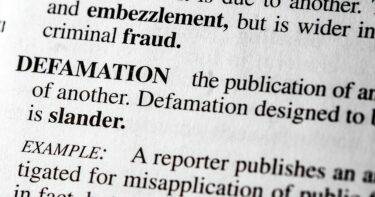
27
Oct 2023
The Challenge Landlords Face Over Deposits
At Chadwick Lawrence, we want to keep you informed on what happens when a person/group of people enter a tenancy agreement. Put simply, the parties involved will, amongst other things, agree terms regarding the length of the contract, rent and the value of the deposit. The tenant(s) will sign the contract and, when the contract expires, the landlord will return the deposit if they feel the property has been well kept and no damages caused. If you’re a tenant, that is probably the extent of it! However, as far as landlords are concerned there are a few more moving parts to this deal.
Once the tenants have paid the deposit, by law, the landlord must ‘protect’ the deposit in a ‘deposit protection scheme.’ The landlord must do this within 30 days of receiving said deposit. The landlord must also provide written information to the tenants about the deposit protection scheme used. This is known as ‘Prescribed Information’ setting out where the deposit is being held and the procedure for recovery and disputes should any issues arise.
The consequences of failing to either protect the deposit in time or provide the Prescribed Information can be significant to landlords.
Try to imagine yourself in the landlord’s shoes and consider the following:
You take a deposit of £500 for a 6-month tenancy agreement, but you don’t ‘protect’ the money and you don’t provide the Prescribed Information. But you do keep the money safe and return it in its entirety at end of the agreement. That’s the end of it? Unfortunately, not. Your tenants are legally entitled to claim back up to 3 times the deposit they paid from the landlord as a penalty for failing to follow the legislation and protect their funds i.e. they could claim a maximum of £1,500 plus return of the original deposit sum. This is despite the fact you kept the money safe and returned it.
Now consider the following. Like before, you have tenants who have paid a £500 deposit for a 6 month agreement. But this time, they renew the agreement after the first 6 months, then again after the next 6 months, and so on and so forth (and no additional deposit is paid, it is simply taken at the start of the tenant’s occupation and carried over). The current approach by the courts in these circumstances is to treat each renewal of a tenancy agreement as a separate breach of the legislation. Using the above example, if a tenancy is renewed on 3 further occasions with a £500 deposit taken initially, a landlord could be exposed to a claim of up to £6,000 plus return of the original sum.
The bottom line for landlords, make sure you meet both the requirements at the outset of any tenancy to avoid being exposed to a potential claim. Alternatively, if you have already failed to protect the deposit, best practice is to return the deposit to the tenant as soon as possible to minimise your exposure.
Our specialist team, Complete Property Solutions, can advise on deposits and issues relating to residential tenancies.
If you wish to discuss with us further, please contact the team on 0800 015 0340, or email mailto:newenquiries-proplit@chadlaw.co.uk
- Like this ? Share with friends





